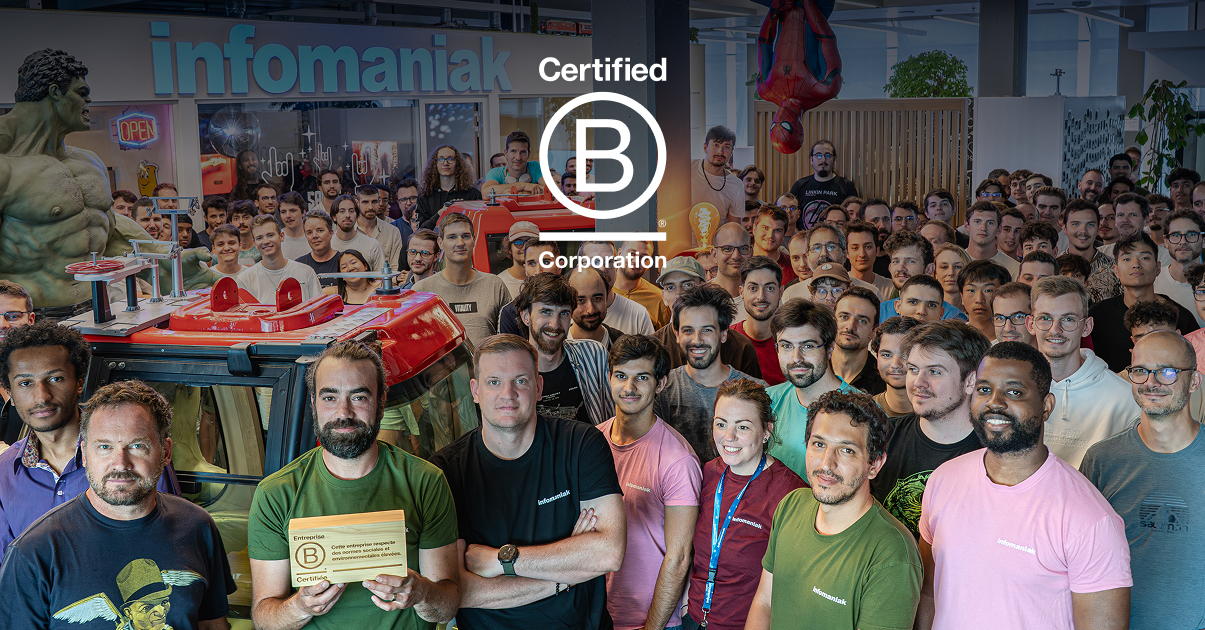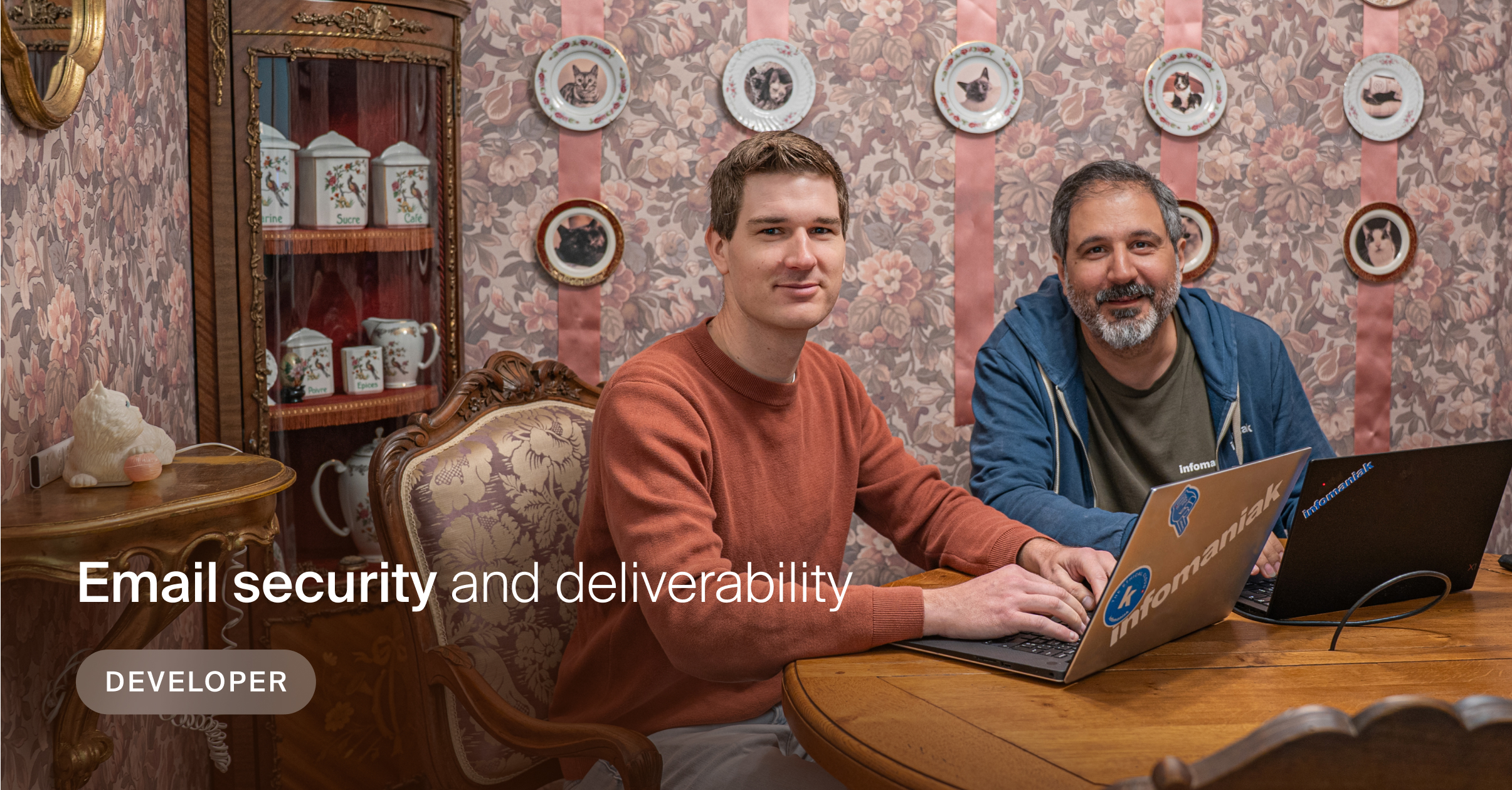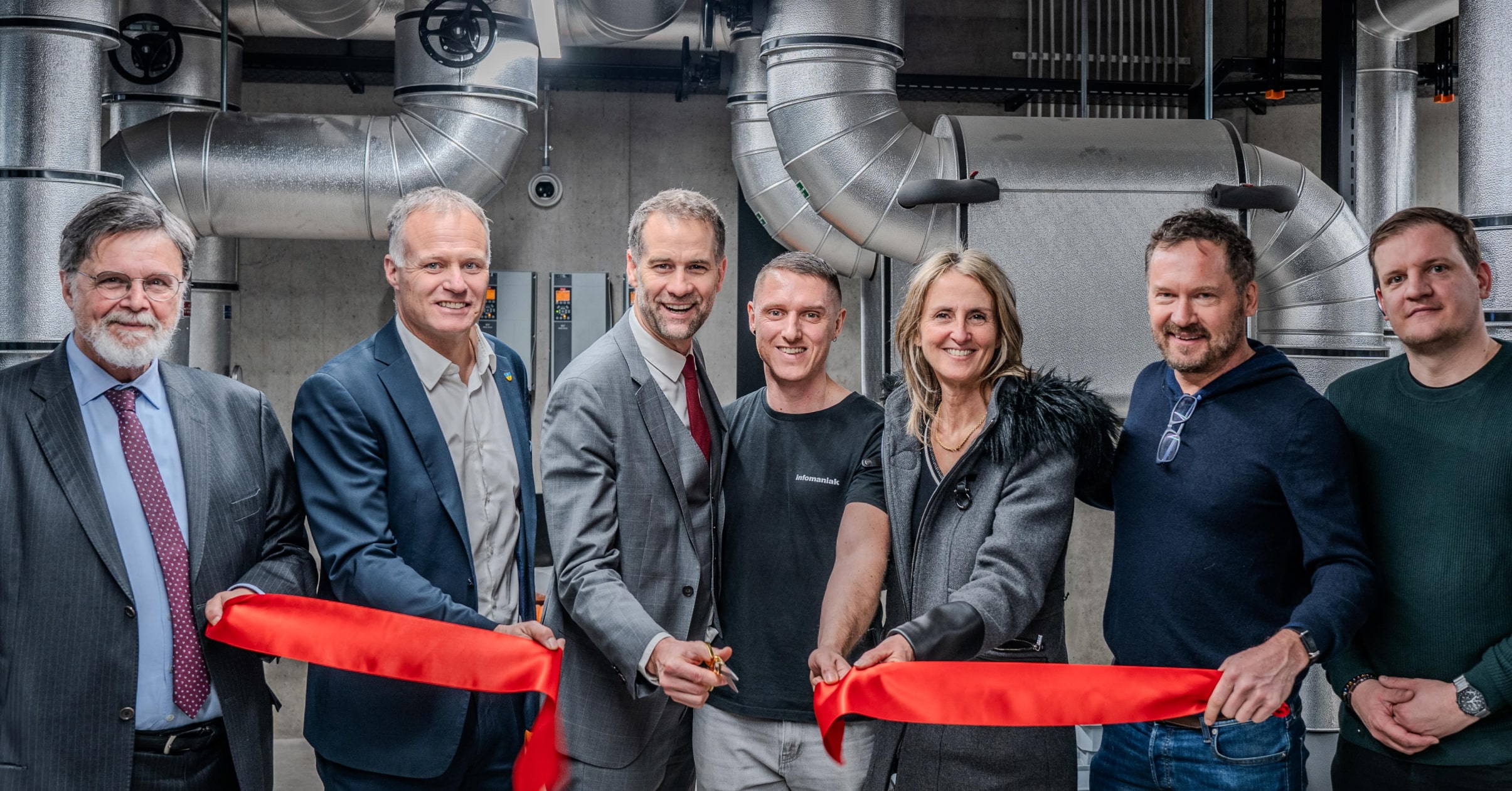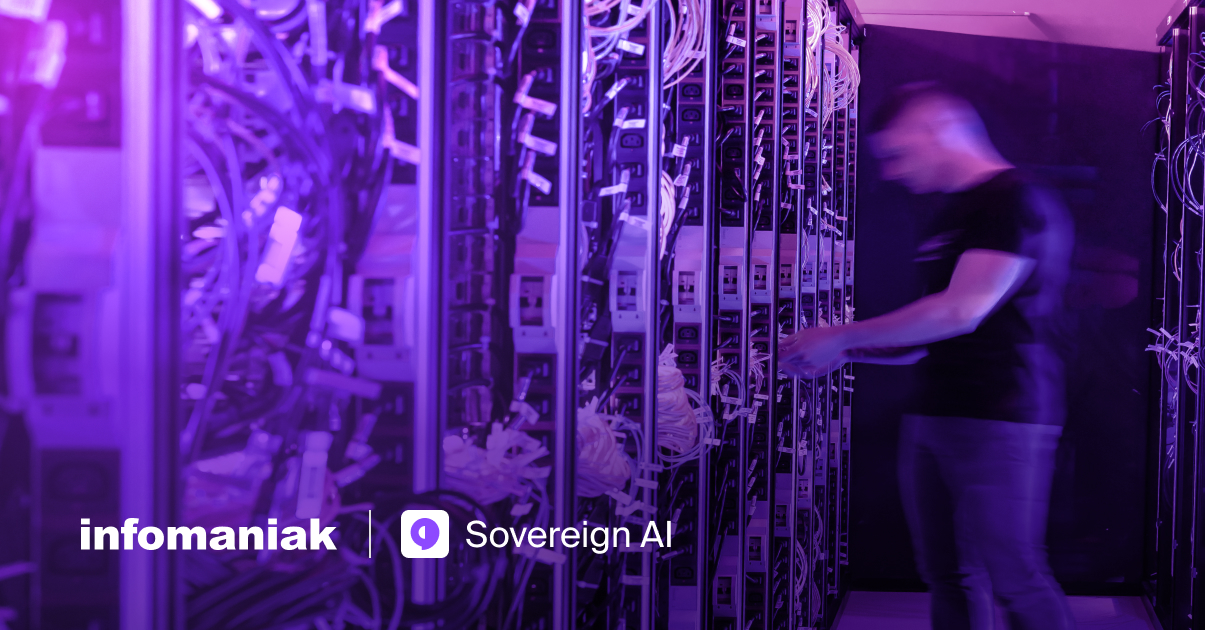Gold sponsor of the annual Debian developers’ conference (DebConf) and contributor to infrastructure deployment technology as an OpenStack service, Infomaniak highlights its cloud experience at the Open Source community summit.
Over two weeks this summer in Taiwan, DebConf18 brought together the specialists of Debian, the GNU/Linux universal operating system, running on the majority of Web servers around the world. The technology developed by this democratically-organised, voluntary community sets the standard. Reputed for its reliability, it is implemented by Infomaniak and players such as NASA, PayPal, WalMart, CERN and even in outer space, by the International Space Station (ISS).
This annual gathering, the project’s cornerstone, is made possible thanks to sponsors’ exclusive participation. Their substantial contribution is Debian’s sole revenue and offers the members of various teams the opportunity to come together under one roof to coordinate current and future projects. DebConf also welcomes those in charge of key projects which may be connected to, satellite or directly-integrated in Debian.
During this 2018 edition, Thomas Goirand, an Infomaniak developer, affirmed the need to free the cloud from restrictions imposed by the infrastructures of commercial operators dominating the market. A prominent contributor and expert in cloud computing open source technologies, Thomas Goirand alias Zigo agreed to answer our questions to share his experience of DebConf18 and his vision of tomorrow’s cloud…
Zigo, backed by Infomaniak, is one of Debian’s key contributors
Zigo, you joined the Infomaniak team a year ago. Could you tell us who is behind this alias and why did you seize this opportunity?
My name is Thomas Goirand and I’m 42 years old. My 2 children were born in Shanghai where I lived for 8 years with my wife, who is Chinese, like my children. I’m fortunate because I speak Mandarin fluently 🙂
I built my professional career around Web hosting. The creation of a business in this sector led me to develop my own software solution. By doing so, since 2010, I was contributing increasingly to Debian and became one of the project’s main uploaders.
In 2011, the arrival of Open Stack, a free infrastructure software as a service, played a role in moving the industry towards the cloud. Gradually, OpenStack would become my full-time work.
To be able to pursue my career with Infomaniak is a unique opportunity which delights me no end. I can continue to maintain OpenStack in Debian and, in addition, I maintain the Debian compatibility in the Puppet-OpenStack upstream project, which we use in production at Infomaniak. As well as my packaging work, Infomaniak sponsors 20% of the time dedicated to open source contribution and enables me to test packages in production for large-scale rollouts.
DebConf: the Council of Elders?
The developers’ get-together takes place over two weeks and is held every year on a different continent. Some of the most brilliant developers in the world meet here. What makes this event unique and why is it so important?
Without this DebConf event, the community wouldn’t be able to structure itself around the project. But we’re part of a free community so the atmosphere is always really relaxed. At DebConf, no-one gets worked up: everyone is welcome. Local culinary specialities and beers take pride of place 🙂
Traditionally-speaking, the conferences follow on from DebCamp: a totally-immersive intensive week of hacking in the hacklabs focusing on the different projects integrating in Debian. It’s an ever-so precious opportunity. It means we can meet each other and, above all, hack together.
For example, to get the secure boot (secure start-up mode), a highly-anticipated feature for Debian, several teams had to make efforts: Debain-boot, FTP masters and the team which maintains the Linux kernel. DebConf is, first and foremost, a gigantic work meeting. The secure boot example is typical of the progress which cannot be made without the coordination of several teams.
And Debian has genuine universal scope. And, this is why we organise DebConf on a different continent every year. This community inclusiveness enables us to broaden our view and to welcome players from free software which is peripheral to Debian. On site, we can gain insight into various projects, in their context. And, this is what also enriches us, motivates us and helps us progress.
Which projects make this 18th edition stand out from past Debian conferences?
DebConf is structured around conferences, workshops and informal discussions on a particularly wide range of topics. Aside from recurrent subjects such as governance, security or the Linux kernel, what really made this edition stand out?
A hard question to answer, because it’s really personal and I don’t represent the community as a whole. I’d rather talk about subjects which left an impression on me.
Firstly, it was the first time ever that DebConf was organised in Asia and that was a real change of scenery for everyone. For me, I was delighted to see my friends from Central China, from Taiwan, again and to meet others I hadn’t met before.
Debian for managing a country’s infrastructures
I think everyone was quite surprised to discover the “Civil Infrastructure Platform” in Taiwan, which Debian rolls out in the country’s critical infrastructures. From managing traffic lights, trains, water through to power plants: the project intends to maintain Debian versions for dozens of years whilst updating packages for fixing bugs and security flaws. It’s an incredibly ambitious and huge job.
The world needs the cloud and the cloud must be free
A subject dear to me: cloud freedom. My conference called “Server freedom: why choosing the cloud OpenStack and Debian” highlights technical solutions for freeing the cloud and for avoiding proprietary solutions. The subject and its challenges are hot topics. The general enthusiasm for online services marks the emergence of the cloud yet, more often than not, pushes customers towards solutions which hold them captive while sacrificing all or part of their data.
My message to the community during this presentation is a pragmatic observation: the cloud has become a top issue for businesses. It shouldn’t be demonised but should favour Debian and OpenStack technologies, offering total control to whoever implements them. This is the struggle which has been driving me since the beginning of my career and its these precise values which I’ve found at Infomaniak.
View the video of Thomas Goirand’s conference at DebConf18
source: DebConf18
What is OpenStack and how is Infomaniak involved in its development?
Along with the Linux kernel, OpenStack is one of the open source community’s most active projects. Could you tell us about the specificities and advantages of this technology?
It’s the benchmark open source software for rolling out cloud computing (infrastructure type as a service). OpenStack does away with material constraints by virtualising server resources (processors, disks, RAM, etc.). As such, material resources are totally dissociated from the supplier’s architecture and can then be redistributed virtually thanks to OpenStack. This approach potentially paves the way for boundless architecture whilst accelerating rollouts. This is the principle of the infrastructure as a service which revolutionises the hosting market and all online services currently available.
When combined with Debian, this technology provides absolute control over architecture and data and offers realtime resource adjustment. With a clearcut top-of-the-range position, Infomaniak proposes a highly-diversified offer on the online services and Web hosting market, focusing on systematically prioritising user freedom. This uncompromising business bias paves the way towards choosing the best open source technologies. It is, therefore, only natural that Infomaniak plays a role in their development.
Infomaniak-developed technical contributions are implemented during complex large-scale rollouts. In view of this, Infomaniak goes beyond the limits whilst integrating optimisations, enhancements and new features dedicated to OpenStack/Debian technologies. The expertise and skills acquired benefit projects directly.
From another point of view and through its contributions, Infomaniak asserts its experience with leading economic operators to express and address industry’s constantly-renewed needs.
What does the future hold for online service hosting?
The arrival of cloud computing encouraged the emergence of unprecedented business models and a new generation of online businesses. In turn, these new economic models call for technological renewal acceleration. Could you tell us what tomorrow’s online service hosting will be like?
I’m not Oracle (“no geek word-play intended”), but I can talk about a trend which should go from strength to strength in coming years: Infrastructure as Code. Let me explain.
With the cloud, the days of rolling out via physical installations in datacentres are practically gone. Resource virtualisation has reached such a level of maturity that we now control everything remotely. And, this means we can dedicate more time to creating added value rather than to maintaining servers, for example.
As far as I see it, that brings out two important principles:
- First of all, a Web hosting service provider’s expertise as regards physical infrastructure is now so rare and so precious that we actually delegate this task to justify the expense. So, hosting service providers who manage to maintain and develop state-of-the-art skill in this field will inevitably come out on top.
- Secondly, rollouts will become increasingly complex. This encourages the emergence of “2.0” infrastructure maintenance specialists. That’s what we call Infrastructure as Code. All sorts of rollouts are totally automated and written or scripted as computer “code”. This enables rolling out applications continuously, without any interruption, whilst optimising costs and performances.
So, we can expect to see a hyperspecialisation of the market: on one side, the automated rollout virtuosos, on the other side, Web hosting infrastructure masters. Maybe both at the same time!
Participating in the project
Developers are invited to join the latest project initiated by Thomas Goirand: OpenStack Cluster Installer (OCI). The tool facilitates and automates the cluster rollout of OpenStack servers.
Find out more
- Discover Infomaniak’s cloud servers
- Discover Very high availability hosting
- Compare Infomaniak’s Web hosting offers
Infomaniak inaugurates a revolutionary data center that recovers 100% of its energy to heat buildings
Tuesday January 28th, 2025

 Français
Français Deutsch
Deutsch Italiano
Italiano Español
Español




